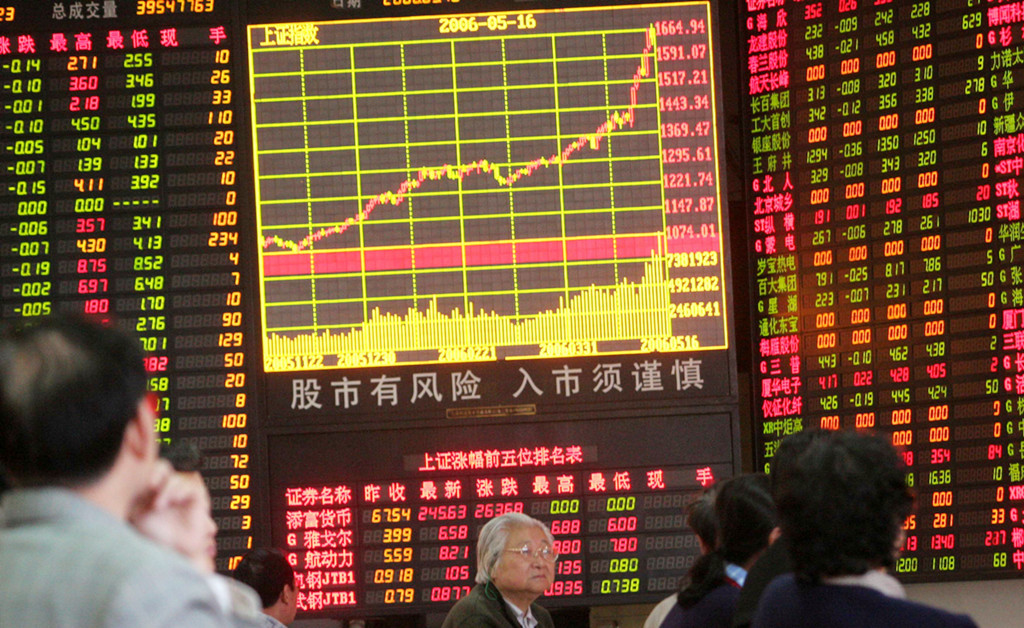
Asian stock markets have endured their most significant decline in over a decade, as a combination of global uncertainty, rising geopolitical tensions, and economic instability has weighed heavily on investor sentiment. The sharp drop in stock prices, which has affected major indices across the region, marks a dramatic shift after years of growth and optimism that had characterized the post-pandemic recovery. As uncertainty looms over key economic indicators, investors are bracing for a period of volatility, with many questioning whether the worst is yet to come.
The week of turmoil saw benchmark indices in Japan, China, South Korea, and other Southeast Asian markets lose substantial ground, with some experiencing their worst weekly losses in over ten years. This downturn reflects a broader global trend, as stock markets around the world grapple with concerns over inflation, interest rates, and geopolitical risks. The magnitude of the declines, combined with the sheer breadth of the selloff, signals that the global economy is facing a complex and uncertain period, which could have far-reaching implications for financial markets and economic growth in the coming months.
Key Drivers of the Market Drop
Several interconnected factors have contributed to the sharp decline in Asian stock markets. These include global economic uncertainties, escalating geopolitical tensions, and concerns about the future direction of monetary policy. Each of these factors has played a role in creating a sense of unease among investors, leading to widespread selling across the region.
1. Global Economic Slowdown:
One of the primary concerns driving the recent market downturn is the fear of a global economic slowdown. After years of unprecedented fiscal and monetary stimulus during the pandemic, many economies are now grappling with the consequences of these measures. Central banks in key regions, including the U.S. Federal Reserve, the European Central Bank, and the Bank of Japan, have been tightening monetary policy in an effort to combat rising inflation. Higher interest rates, while necessary to address inflation, are also seen as a potential drag on global growth, particularly in emerging markets that are more sensitive to changes in borrowing costs.
For Asian markets, which rely heavily on exports and international trade, the prospect of a global economic slowdown is especially concerning. As demand for goods and services wanes in major economies, countries across the region, particularly in East Asia, could see a reduction in export activity, which would hurt corporate earnings and overall economic growth. Additionally, investors are increasingly concerned about the potential for recessions in major economies like the United States and Europe, which could have ripple effects on global trade and investment flows.
2. Geopolitical Tensions and Market Volatility:
In addition to economic concerns, rising geopolitical tensions have also contributed to the volatility in Asian stock markets. Conflicts in various parts of the world, including the ongoing war in Ukraine, tensions between the U.S. and China, and instability in the Middle East, have created an atmosphere of uncertainty that has left investors on edge. In particular, the situation between China and Taiwan has raised concerns about the potential for military conflict, which could severely disrupt trade and economic activity in Asia.
The ongoing conflict in Ukraine has exacerbated the global energy crisis, leading to soaring energy prices and supply chain disruptions. These issues have had a direct impact on inflation, further complicating the economic outlook. As energy prices rise, businesses face higher operating costs, which could lead to slower growth or even contraction in some industries. Investors, worried about the knock-on effects of these geopolitical events, have been retreating from riskier assets, such as stocks, in favor of safer investments like gold or government bonds.
3. Inflation and Rising Interest Rates:
Another significant factor weighing on Asian markets is the persistent inflationary pressure that continues to affect economies worldwide. While inflation in some regions has started to ease, in many parts of the world, including Asia, it remains high. In response, central banks have implemented a series of interest rate hikes to tame rising prices, making borrowing more expensive and dampening consumer and business spending.
The impact of higher interest rates is particularly acute in emerging markets, where many businesses rely on foreign capital to finance expansion and operations. As borrowing costs rise, these companies may face challenges in securing funding or servicing debt, which could result in reduced profitability and economic growth. Additionally, higher interest rates could lead to currency depreciation in some Asian economies, further contributing to inflationary pressures and eroding investor confidence.
4. Market Sentiment and Investor Fear:
Market sentiment has also played a crucial role in driving the recent selloff in Asian equities. As global uncertainty continues to mount, investors are increasingly risk-averse, moving away from stocks and into safer assets. This has led to a widespread revaluation of equities, particularly in sectors that had been previously overvalued, such as technology and real estate. With the prospect of lower earnings growth and increased risks in the global economy, many investors are opting to hold cash or invest in more defensive assets, such as bonds or commodities.
This shift in investor sentiment has triggered a self-reinforcing cycle, with falling stock prices leading to further selling as investors rush to cut their losses. The decline in equity prices has also had a psychological effect, leading to increased fear and uncertainty in the market. As investors digest the implications of global economic and geopolitical risks, the likelihood of continued volatility in the Asian stock markets remains high.
Impact on Key Asian Economies
The consequences of this market turmoil have been felt acutely in several key Asian economies, particularly those that are heavily reliant on exports and global trade. In Japan, the Nikkei 225 Index experienced one of its steepest weekly declines in years, reflecting growing concerns about the country’s export sector and the impact of global inflation on consumer demand. Similarly, in China, the Shanghai Composite Index plunged as investors reacted to the slowdown in the country’s economic growth and the ongoing challenges posed by the country’s strict zero-COVID policy.
South Korea’s Kospi Index also saw significant losses, with technology and semiconductor stocks, which are crucial to the country’s economy, taking a hit. In Southeast Asia, countries like Singapore, Indonesia, and Malaysia faced market sell-offs as investors sought refuge from riskier assets, with the regional stock indices reflecting a broader trend of market pessimism.
Looking Ahead: What’s Next for Asian Markets?
As Asian markets grapple with the fallout from the past week’s dramatic declines, investors are left wondering whether the worst is behind them or if further volatility lies ahead. The global economic outlook remains uncertain, with concerns about inflation, rising interest rates, and geopolitical risks continuing to hang over the market.
However, some analysts believe that the recent sell-off could present buying opportunities for long-term investors. As stocks in some sectors become more attractively priced, there may be opportunities for investors to pick up undervalued assets. Additionally, if central banks adopt more dovish monetary policies in response to weakening economic growth, this could provide a boost to risk assets, including stocks.
Ultimately, the future of Asian stock markets will depend on how global economic and geopolitical factors evolve. As the world faces an increasingly complex set of challenges, investors will need to carefully navigate the uncertain waters ahead, keeping a close eye on the broader economic picture and remaining adaptable in the face of market volatility.







